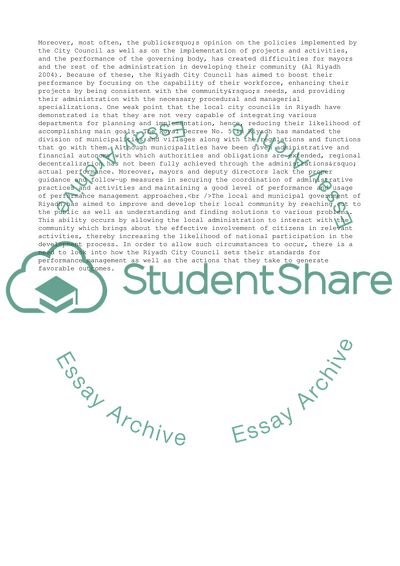Cite this document
(Performance Management Case Study Example | Topics and Well Written Essays - 1750 words, n.d.)
Performance Management Case Study Example | Topics and Well Written Essays - 1750 words. https://studentshare.org/management/1749696-additional-pages-for-what-are-the-strengths-and-challenges-of-the-performance-management-system-of-riyadh-city-council-research-proposal-pro-and-ethics-forms
Performance Management Case Study Example | Topics and Well Written Essays - 1750 words. https://studentshare.org/management/1749696-additional-pages-for-what-are-the-strengths-and-challenges-of-the-performance-management-system-of-riyadh-city-council-research-proposal-pro-and-ethics-forms
(Performance Management Case Study Example | Topics and Well Written Essays - 1750 Words)
Performance Management Case Study Example | Topics and Well Written Essays - 1750 Words. https://studentshare.org/management/1749696-additional-pages-for-what-are-the-strengths-and-challenges-of-the-performance-management-system-of-riyadh-city-council-research-proposal-pro-and-ethics-forms.
Performance Management Case Study Example | Topics and Well Written Essays - 1750 Words. https://studentshare.org/management/1749696-additional-pages-for-what-are-the-strengths-and-challenges-of-the-performance-management-system-of-riyadh-city-council-research-proposal-pro-and-ethics-forms.
“Performance Management Case Study Example | Topics and Well Written Essays - 1750 Words”. https://studentshare.org/management/1749696-additional-pages-for-what-are-the-strengths-and-challenges-of-the-performance-management-system-of-riyadh-city-council-research-proposal-pro-and-ethics-forms.


